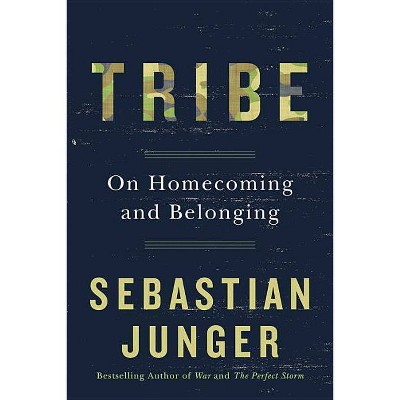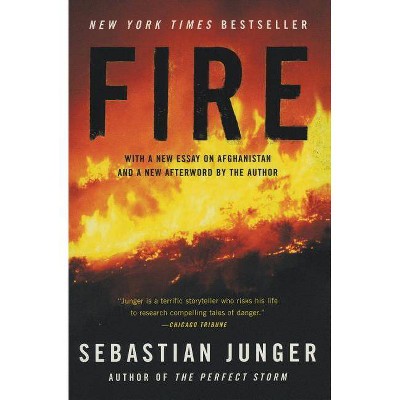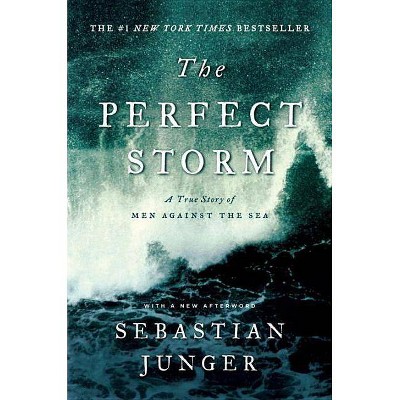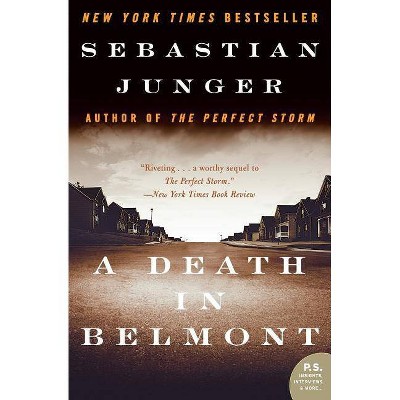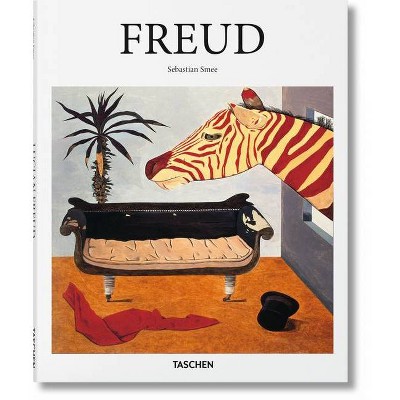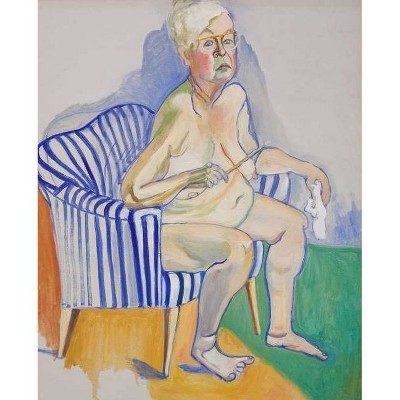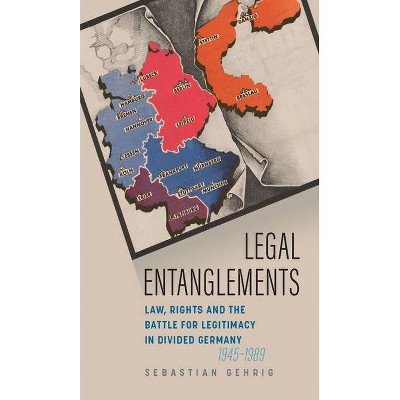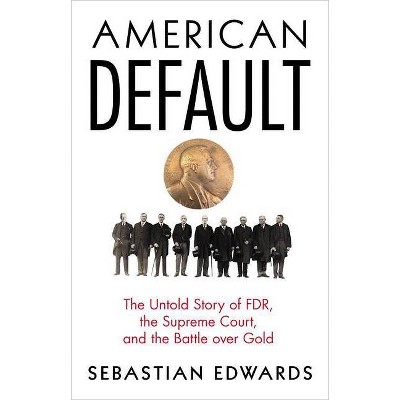Freedom - by Sebastian Junger (Hardcover)
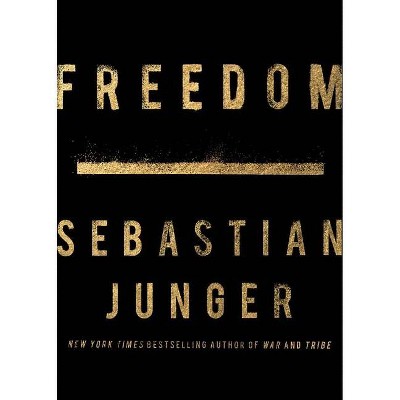
Similar Products
Products of same category from the store
AllProduct info
<p/><br></br><p><b> Book Synopsis </b></p></br></br><b>A profound rumination on the concept of freedom from the <i>New York Times</i> bestselling author of <i>Tribe.</i></b> <p/>Throughout history, humans have been driven by the quest for two cherished ideals: community and freedom. The two don't coexist easily. We value individuality and self-reliance, yet are utterly dependent on community for our most basic needs. In this intricately crafted and thought-provoking book, Sebastian Junger examines the tension that lies at the heart of what it means to be human. <p/>For much of a year, Junger and three friends--a conflict photographer and two Afghan War vets--walked the railroad lines of the East Coast. It was an experiment in personal autonomy, but also in interdependence. Dodging railroad cops, sleeping under bridges, cooking over fires, and drinking from creeks and rivers, the four men forged a unique reliance on one another. <p/>In <i>Freedom</i>, Junger weaves his account of this journey together with primatology and boxing strategy, the history of labor strikes and Apache raiders, the role of women in resistance movements, and the brutal reality of life on the Pennsylvania frontier. Written in exquisite, razor-sharp prose, the result is a powerful examination of the primary desire that defines us.<p/><br></br><p><b> Review Quotes </b></p></br></br><br>"A fascinating look at freedom and community." <b>--</b>Mackenzie Dawson, <b><i>New York Post</i></b> <p/> "<i>Freedom</i> is less a travelogue than a meditation on what Americans have had to endure to gift us this galvanizing idea, which in Junger's estimation is more complicated than we might presume and easily squandered."<b> --</b>Edward Nawotka, <i><b>Los Angeles Times</b></i> <p/> "It's such a slim little book with such a simple title-- <i>Freedom</i>-- but there's nothing simple about the questions that word evokes...[An] elegant little book...it's about a walk--and so much more." <b>--</b>Robin Young, <b> NPR Here & Now</b> <p/> "Readers who've enjoyed classics such as Henry David Thoreau's <i>Walden</i> or Jack Kerouac's <i>On the</i> <i>Road</i> will certainly find something worthwhile within Junger's journey. And while <i>Freedom</i> has much more in common stylistically to modern classics such as Jon Krakauer's <i>Into the Wild</i> or Bill Bryson's <i>A Walk in the Woods</i>, those books often used the journey's encounters as a convenient jumping-off point for the author to contemplate their own existence. Conversely, Junger spends the majority of his time contemplating larger existential questions that not only affect him, but all of humanity...Still, Junger weaves in broad and complicated topics into the narrative and does so in an accessible way. He doesn't get bogged down in the minutiae of the history of the region, nor does he meander or ramble when reflecting on his own existential dilemmas. He is concise and focused, but still manages to be both informative and vulnerable." <b><i>--</i></b>Seth Combs, <i> <b>The </b><b>San Diego Union-Tribune</b></i> <p/> "Junger contemplates the intersection of autonomy and coterie at a time when the word itself, while holding so much meaning, is so often misunderstood." <b>--</b>Sarah Sicard, <b><i>Military Times</i></b> <p/> "The author known for <i>The Perfect Storm</i> and other nonfiction works, covers a lot of ground, literally and figuratively, in this slim book. <b><i>--</i></b>Jim Kiest, <i> <b>San Antonio Express-News</b></i> <p/> "Junger observes, and reports, watches and appreciates, and his thoughts on his title subject will make you truly consider your own definition of this basic right. 'Freedom' is not an anti-freedom book; it underscores, and you shouldn't want to wait to open it."<b><i> --Daily Jefferson County Union</i></b> <p/> "[Junger] gives us richly detailed descriptions of landscape, camp sites, railroad infrastructure, and rumbling freight trains that carry menace as well as cargo...It's a short book..but it packs a wallop with its vivid scenes of the tramping life interspersed with detours into human history." <b><i>--</i></b>Arthur Hoyle, <i> <b>New York Journal of Books</b></i> <p/> "As a consummate writer, Junger has created a short, tight story that gets to the heart of the tensions of what it means to be human today." <b><i>--Book Marks</i></b> <p/> "Journalist and filmmaker Junger returns to the fertile ground of male camaraderie and the pushing of limits. This time, instead of Afghanistan, the setting is closer to home...the former frontier and wilderness of Pennsylvania. The setting is conducive to ruminations on the concept of freedom, and, with muscular prose and vivid, poetic descriptions, Junger both conjures the trek and ponders the nomadic lifestyle, Genghis Khan, Daniel Boone, fugitive slaves, the Seminole Indians, boxers, and the Gini coefficient." <b>--</b>Ben Segedin<b>, </b><i><b>Booklist</b></i> <p/> "[Junger's] account of their travails (blisters, exhaustion, freezing cold weather) is interspersed with philosophical musings ("the inside joke about freedom... is that you're always trading obedience to one thing with obedience to another"), lyrical nature writing (the water in one Pennsylvania creek "tasted as though civilization was something in the future"), and observations about war, human endurance, and the settling of the American frontier." <b>--<i>Publishers Weekly</i></b> <p/> <p/> "Political philosophy and political debates are often respectively abstract and oppositional, but Junger uses everyday language and a broad view of human experience. <i>Freedom</i> is an approach to the topic based in reality and, as a result, one which speaks to real life. We need more books like it, because real life is where the struggles we have over freedom take place. And while it is not useless to read Rousseau, books like this offer more immediately relevant guidance as we pursue genuine freedom in our day-to-day lives."--Elizabeth Stice, <b><i>Front Porch Republic</i></b> <p/> "<i>Freedom</i> is essentially 133 pages of philosophical daydreams that educate and entertain. It is equally as thought provoking as <i>Tribe</i> and as enjoyable as <i>Fire</i> -- his collection of short stories focused on dangerous jobs. There's history, science, reflection, and beautiful prose. And of course, walking. Lots of walking." <b>--</b>Mac Caltrider<b>, </b><b><i>Coffee or Die</i></b><br><p/><br></br><p><b> About the Author </b></p></br></br>Sebastian Junger is the <i>New York Times</i> bestselling author of <i>Tribe</i>, <i>War</i>, <i> A Death in Belmont</i>, <i> Fire</i>, and <i>The Perfect Storm</i>, and co-director of the documentary film <i>Restrepo, </i>which was nominated for an Academy Award. He is also the winner of a Peabody Award and the National Magazine Award for Reporting. He lives in New York City with his family.
Price History
Price Archive shows prices from various stores, lets you see history and find the cheapest. There is no actual sale on the website. For all support, inquiry and suggestion messagescommunication@pricearchive.us
